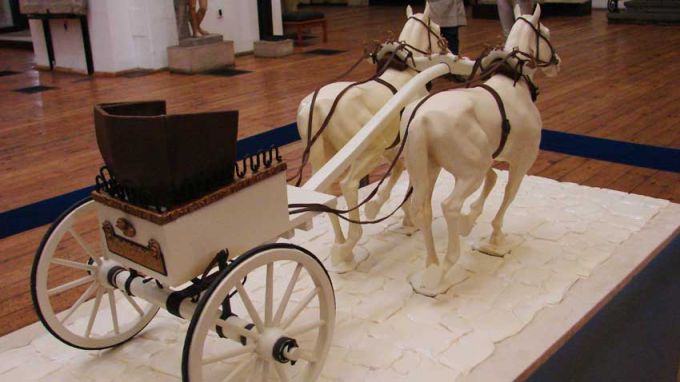
Students from the University of Montreal who read archeology and Mediterranean history of the Classical Antiquity have arrived in Bulgaria to get acquainted with the history and culture of the Thracians. They will spend three weeks in this country to later travel to Northern Greece and Turkey. „Interest in Thracian studies and in the Eastern Mediterranean in general is getting keener by the day for various reasons and one of them is that the Thracians developed a culture alternative to the Hellenic one in this region”, leading Bulgarian Thracian scholar Prof. Valeria Foll says in an interview for Radio Bulgaria. Besides, the University of Montreal has for the past 21 years held regular archeological excavations in Argilos, Greece. Originally, the village was Thracian and was later inhabited by Greek colonists.
"This university in the person of Prof. Jacques Perreault and his team has lasting interest in Thracian-Hellenic economic, cultural and political relations, Valeria Foll explains. “The course is included in the syllabus of the university. In Bulgaria the students are acquainted with the archeological artifacts, and of course, they visit a few major archeological sites in the country. This year we have focused on Central Southern and Southeastern Bulgaria, simply because we are short of time to go across the Balkan Range to the north or to travel to the Rhodope Mountains in the south. I hope that the university will keep its interest in this subject. In fact, this course has resulted from an agreement that the University of Montreal signed with the Sofia-based University of Library Studies and Information Technologies for exchange of students and professors. The students who come here are very well trained in advance and always display great curiosity where Thracian heritage is concerned.”
Prof. Valeria Foll recalls that Canadian universities have become interested in the Thracian heritage following the presentation in 1987 of a Thracian exhibition in Canada featuring monuments from the Bulgarian lands. The catalogue to that exhibition is bilingual, in French and English, and is studied by university students.
English Daniela Konstantinova
On 3 March, Bulgaria celebrates the 147th anniversary of its liberation f rom five centuries of Ottoman rule. The day was declared a national holiday in 1990 by a decision of the National Assembly. The Treaty of San Stefano, signed on 19 February..
Today is Cheesefare Sunday. According to Orthodox tradition, this day is observed on the eve of Great Lent, when Christians seek and give forgiveness to each other . It is also known as Sirni Zagovezni because it marks the last day before Lent, when..
Priest Lyubomir Bratoev is a direct participant in the events of t he founding of the Bulgarian Orthodox Church community in Berlin . He came to the capital of East Germany in the late 1980s as a doctoral student. And, like a typical Orthodox Christian..
On 20 April, all Christians will celebrate the Resurrection of Christ. Against the backdrop of our divided and troubled world, Catholics, together with..
Holy Saturday services begin on Friday evening with Vespers. The Church commemorates the burial of Christ the Saviour and His descent into hell to save the..
Patriarch Danil of Bulgaria, Metropolitan of Sofia, greeted the faithful with the joyful words "Christ is risen!" In his Easter message, he called on..

+359 2 9336 661
